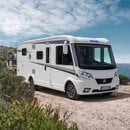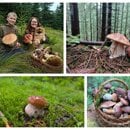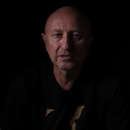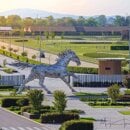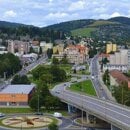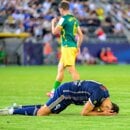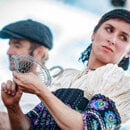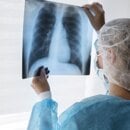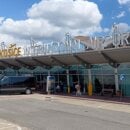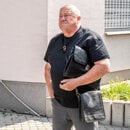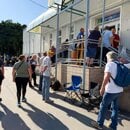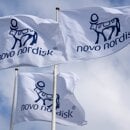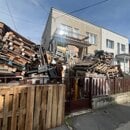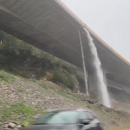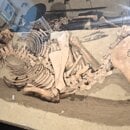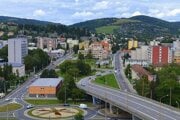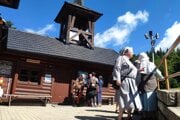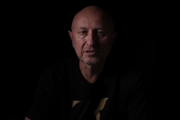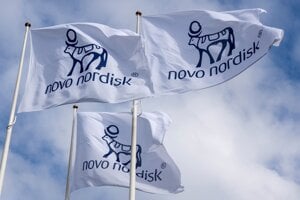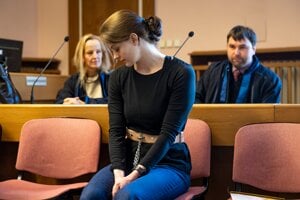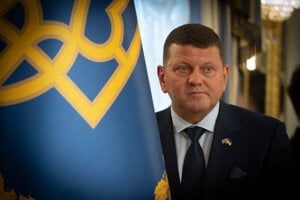Natural disasters take many different forms and can happen without warning. Earthquakes, floods, volcanoes, drought, typhoons and hurricanes are all natural disasters.
The earthquake of 26th December 2004 resulted in one of the worst natural disasters in living memory. It was a massive underwater quake and occurred in the Indian Ocean. This caused a huge tidal-wave (a tsunami) to cross the Indian Ocean. It destroyed coastlines, communities and brought death and destruction to many people. Thousands of people were killed as the wave travelled miles across the ocean to distant beaches. Whole families were swept out to sea or drowned as the sea invaded the land. The survivors need fresh water, food and shelter as well as medical help. People from all over the world are giving lots of money so that towns and villages can be rebuilt.
Why do earthquakes happen?
The surface of the earth has not always looked as it does today; it is moving continuously (although very slowly) and has done so for billions of years. This is one cause of earthquakes, when one section the earth (tectonic plate) collides with another. Scientists can predict where (but not when) this might happen and the area between plates is called a fault line. On one fault line in Kobe, Japan in 1923 over 200,000 people were killed. However, earthquakes do not always happen on fault lines, which is why they are so dangerous and unpredictable.
Where do volcanoes happen?
Volcanoes happen where the earth's crust is thin - lava, dust and gases burst out (erupt) from beneath the earth. They can rise into a massive cone shape - like a mountain and erupt, or they can be so violent that they just explode directly from the earth with no warning. There are 1511 ‘active' volcanoes in the world. This means that they may still be dangerous. In 1985 the massive Colombian volcano Nevado del Ruiz erupted. The lava melted a glacier and sent tones of mud down the town of Armero below. Twenty thousand people died.
Can we predict earthquakes and volcanoes?
Natural disasters like volcanoes are often unpredictable. We regularly do not know when they might happen, or even where they will happen. In the future, scientists may be able to watch and predict events before they happen. This could save many lives. In South America, scientists predicted the eruption of Popocatépetl. Tens of thousands of people were safely moved just before the biggest eruption of the volcano for a thousand years. No one was hurt.
What is the difference between a Hurricane and a Tornado?
Hurricanes are extremely strong storms and often happen in the Caribbean. They cause high winds, huge waves, and heavy flooding and can be hundreds of miles across. In 1998, Hurricane Gilbert produced 160 mile an hour winds. It killed 318 people, and destroyed much of Jamaica. Tornadoes or ‘twisters' are very strong spinning winds. They can move objects as big as a car and can blow buildings down. These are very common in West Africa and certain areas of the USA.
Can too much rain cause problems?
Floods happen in many countries after very heavy rainfall. When rain pours for weeks at a time, rivers overflow and people and property can be trapped or simply washed away. Since 1998, more than 30 people have drowned in floods in Britain. Flooding in Bangladesh caused 1300 deaths in 1989, another natural disaster.
.....and too little?
Another kind of natural disaster is a drought. This happens when there is no water, when it doesn't rain for a long time and rivers dry up. Plants, animals and even humans die as a result of drought, for we all need water to live. Many countries today suffer from drought. This causes crops to fail, animals to die and sadly, people to starve.
Which is the most dangerous natural disaster?
All the disasters mentioned above are very dangerous and continue to kill thousands of people each year, but they are nowhere near the most dangerous disaster to ever happen on earth. One type of event in earth's history has regularly killed millions of beings; asteroid impacts. About once every million years the earth is hit by a piece of rock and ice from space large enough to cause massive destruction (including earthquakes, volcanoes and ice ages) and sometimes to kill entire species. 65 million years ago more than half the earth's species were killed by such an impact (including all the dinosaurs).
Disasters on the earth may seem dangerous, but the biggest threat to humans is likely to come from space.
Vocabulary
5 words/phrases from the text:
- massive: enormous
- unpredictable: not foreseen
- glacier: a large mass of ice that has formed over many years
- trapped: caught and unable to free oneself
- starve: to die from lack of food
Exercise one.
Vocabulary gap fill. Now use the 5 words/phrases to fill the gaps in the sentences below:
- He suffered from a ............... heart attack and died
- She was an ................ child so we never knew what she was going to do next
- They saw penguins, polar bears and a ............ when they visited the North Pole
- The group was ........ in the mountains and had to be rescued
- In Third World countries people .......... because they cannot afford to buy food
Exercise two.
Comprehension. Answer the 5 questions using information from the article.
- What is a fault line?
- How many volcanoes in the world can possibly erupt?
- How were lives saved when Popocatépetl last erupted?
- Where do hurricanes and tornadoes usually occur?
- Why do droughts case death in plants, animals and people?
Grammar.
Past ability & possibility
In the present tense we use ‘can' to talk about a general ability - e.g. I can swim - and also for ability at a particular moment - e.g. I can see you!. The rules for talking about past abilities are different.
General ability
We use could to talk about general abilities in the past.
He could speak fluent French when he was 5.
I could read before I started school.
Ability on one occasion
However, when we talk about ability on one particular occasion, we can't use could
The burglar was able to get in through the bathroom window.
The burglar managed to get in through the bathroom window.
We have to use was able to or managed to. We can't use could.
The burglar could get in through the bathroom window.
Ability on one occasion - negative
When we talk about a particular occasion when something wasn't possible, we can use wasn't/weren't able to, didn't manage to, or couldn't
The burglar wasn't able to get in through the window.
The burglar didn't manage to get in through the window.
The burglar couldn't get in through the window.
Hypothetical past ability
Sometimes things were possible in the past but didn't happen.
I could have gone to university but I decided to get a job.
I would have been able to win the race but I fell over.
We use could have (+ past participle) or would have been able to to talk about these hypothetical events. They can be used in the positive and the negative.
I couldn't have done it without your help.
I wouldn't have been able to afford it even if it had been for sale.
Exercises
Write sentences with the same meaning as the sentences below using the word in brackets.
- I tried to open the door but it was too difficult. (able)
- I knew how to play the piano when I was 7. (could)
- I had a chance to steal the necklace but I didn't. (could)
- It was difficult but they escaped. (managed)
- The money you lent me meant I could afford to buy a car. (able)
Quiz Question 22
Surname of musician associated with Blur and Gorillaz.
Natural disasters - key
Vocabulary
- massive
- unpredictable
- glacier
- trapped
- starve
Comprehension
- A fault line is the area between the plates that cover the Earth
- One thousand, five hundred and eleven
- Lives were saved because scientists were able to predict the eruption and evacuate people
- Hurricanes occur in the Caribbean and tornadoes occur in West Africa and some parts of the USA
- Droughts cause death because all living things need water to live
Grammar
- I wasn't able to open the door.
- I could play the piano when I was 7.
- I could have stolen the necklace (but I didn't).
- They managed to escape.
- I wouldn't have been able to buy a car without the money you lent me.

